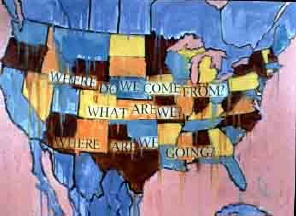Essential Understandings in Studying
Native American Literature and History
Diversity:
Diversity between tribal groups is great in language, culture, histories
and governments.
Individual diversity within any group is great.
Identity:
There is a great diversity among individual American Indians as identity
is developed,
defined, and redefined by many entities, organizations, and people.
There is a continuum of Indian identity ranging from highly assimilated
to very traditional and is unique to each individual.
There is no generic American Indian.
Culture:
The ideologies of Native traditional beliefs and spirituality persist
into modern day life as tribal cultures, traditions and languages are
still practiced by many American Indians and are incorporated into how
tribes govern and manage their affairs.
Additionally, each tribe has its own oral history beginning with their
origins that are as valid as written histories. These histories predate
the "discovery" of North America.
History:
History is a story told from the subjective experience of the teller.
History told from an Indian perspective often conflicts with what most
of mainstream history tells us.
Sovereignty:
The supreme power from which all specific political powers are derived.
Sovereignty is inherent. It cannot be given to one group by another.
Three forms of sovereignty exist
in the U.S.--federal, tribal and state.
Under the American legal system,
Indian tribes have sovereign powers separate and
independent from the federal and state governments. However, the extent
and breadth of tribal sovereignty is not the same for each tribe.
Reservations are land that have been
reserved by the tribes for their own use through treaties and was not
"given" to them. The principle that land should be acquired from the
tribes only through their consent with treaties assumed that both
parties to treaties were sovereign powers.
U.S. Policies:
Federal Indian policies shifted through 7 major periods that impacted
Indian people and shape who they are today and what they write about.
Much of Indian history can be related through several major federal
policy periods.
Colonization
Period
Treaty Period
Allotment Period
Boarding School Period
Tribal Reorganization
Termination
Self-determination
Courtesy of Professor Kate
Shanley (Assiniboine), University of Montana and Montana Office of
Public Instruction |
